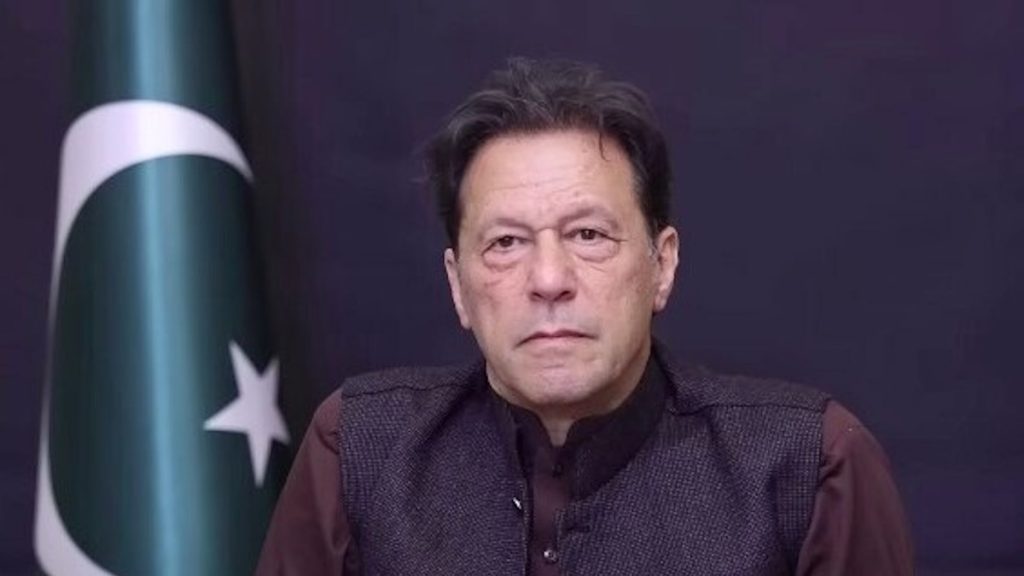Is Pakistan on the verge of a systemic collapse?
In April 2022, Imran Khan made history after becoming the first prime minister in Pakistani history to be removed from office via a no-confidence vote while the country was mired in a constitutional crisis. Khan would be later replaced by Mian Shahbaz Sharif.
Khan, a former cricket star, was initially elected in 2018 on a populist platform that sought to root out corruption in Pakistani politics and turn the Islamic country of over 249 million people into a prominent player on the world stage. However, matters have only worsened for Khan since being relieved of the burden of holding higher office.
On May 9, 2023, Khan was arrested for alleged corruption charges at the High Court in Islamabad, further adding controversy to Khan’s political career and one of Pakistan’s most sensitive moments in its political history.
Since Khan’s ouster, rising food, gas, and oil prices have increased, which Pakistanis of all economic stripes have largely felt in their everyday lives. Due to Pakistan’s institutional corruption and lagging economic productivity, the country is going through a balance of payment crisis, where the country is incapable of earning sufficient foreign exchange to buy the imports it consumes.
The central bank of Pakistan has about $4.4 billion in foreign reserves, which can only cover roughly a month of imports, per Tahir Abbas, the director of research at Arif Habib, a financial firm based in Karachi. As a result of Pakistan’s plummeting reserves, the country has had trouble importing critical products such as food.
Further, shortages of food items have further spurred rising prices. Inflation has surged to an annual rate of 36.4% in April, with food costs climbing upwards by roughly 47% in urban centers and over 52% in rural areas. Against the backdrop of Pakistan’s present economic problems, there are now fears that Pakistan could potentially default on its debt in the next few months.
On June 9, Khan tweeted about Pakistan’s current economic woes: “How in one year the regime change operation has done more damage to the people of Pakistan than any enemy could have ever caused. What’s worse is that no one is being held accountable for this crime against the people of this country.”
While Pakistan is an impoverished nation with a per capita GDP above $1,600, it is one of 9 countries that possess nuclear weapons. According to the estimates from nuclear experts, Pakistan has about 165 nuclear warheads in its arsenal. In light of this, the prospect of Pakistan collapsing would be a frightening prospect for world stability.
Pakistan’s arch-rival India would generally relish the prospect of a weakened Pakistan. But a completely imploded Pakistan would be a bridge too far for India as it would have to potentially square off against transnational terrorist actors who could have nuclear weapons at their disposal.
China, Pakistan’s largest trade partner, would absolutely be frightened by the prospect of a Pakistani collapse. According to the Pakistani Ministry of Commerce, Pakistan’s and China’s bilateral trade volume is around $19.5 billion. Pakistan is also an integral part of China’s One Belt, One Road (BRI) initiative that seeks to economically integrate the Eurasian landmass in a way that aligns with Chinese geoeconomic interests. Moreover, Pakistan is an integral partner for China in its efforts to limit Indian influence. China’s String of Pearls maritime network and the BRI effectively function as trade networks that shut out India from a broader Eurasian trade ecosystem that China expects to dominate by the end of the 21st century.
Undoubtedly, Pakistan will be an interesting country to observe in the upcoming months. It’s clearly in one of its most sensitive historical moments. Any systemic collapse that could potentially afflict the country will clearly have global massive implications at the geopolitical level. It would behoove geopolitical commentators to watch Pakistan with great interest in the upcoming months. A nuclear power could be on the verge of falling into failed state status — a prospect most of the world is not prepared for.
